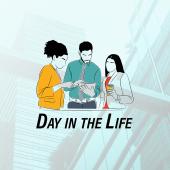
As I write this column, we are all in the midst of a historical event: a global pandemic. Countries, states, cities, and counties have issued shelter-in-place orders. Employees are working from home and balancing teleworking with homeschooling as schools and universities remain closed. Practically every day, I receive 30 to 50 emails from other in-house attorneys, law firms, and government agencies on issues related to the coronavirus: new government orders issued, pending or passed legislation, new regulations, requests for or samples of company policies or procedures. Everyday citizens, alongside journalists, monitor the 24- hour news cycle. It can be overwhelming. Online streaming services such as Netflix and Amazon Prime are enjoying record downloads and delivery services are experiencing unprecedented growth.
If you had not heard of the online meeting application “Zoom” before, chances are you have now. I recently used FaceTime to talk to my father who I usually see weekly but haven’t seen in a month now. I’m sure many of you are FaceTime veterans, but I still do phone calls the “old school” way, without a camera. But now, I am incredibly grateful for all the modern technology that allows us to stay connected in a time of separation, and for some, isolation.
A time like this can prove incredibly challenging for extroverts like me while many introverts may be scratching their heads puzzled by the struggle. Andrew Ferguson of The Atlantic provided a unique take on the situation in his article “Springtime for Introverts.” Ferguson writes: “When newscasters tell Americans that we are entering a ‘strange new way of life’ or a ‘new normal,’ or moving into ‘unfamiliar territory,’ I know they’re not talking to me. I and millions like me have been trying to self-isolate for years. We are the hopeful practitioners of antisocial distancing.”
I reached out to one of my best friends, a self-proclaimed introvert, to see how she was faring. As a stay-at-home mom, life had not changed much for her. Her husband works for one of the “essential businesses,” so he still reports to work taking all the CDC recommended precautions. The kids normally hang around the house anyway and now they are simply home for school. She reminded me of the 2015 movie Bridge of Spies and the philosophy repeated by one of the main characters.
Bridge of Spies is a 2015 historical drama starring Tom Hanks as lawyer James Donovan. Donovan has accepted the task of defending Soviet spy Rudolf Abel, played by Mark Rylance. Donovan ends up negotiating with the Soviet Union for the release of the Francis Gary Powers, the captured U-2 pilot, by trading Powers for Abel.
During their first meeting, Donovan and Abel have the following conversation:
Donovan: Let’s start here. If you are firm in your resolve not to cooperate with the US Government …
Abel: I am.
Donovan: Yeah, then do not talk to anybody else about your case inside of government or out, except to me, to the extent that you trust me. I have a mandate to serve you, nobody else does. Quite frankly, everybody else has an interest in sending you to the electric chair.
Abel: All right.
Donovan: You don’t seem alarmed.
Abel: Would it help?
Throughout the film, they will continue to have similar exchanges with Donovan repeatedly asking Abel whether Abel is worried. Abel calmly replies each time: “Would it help?”
The current environment holds challenges for us all. Once it has passed, and it will pass, we will have to deal with the consequences. How we deal with these circumstances and what follows remains firmly in our hands. As general counsel, my CEO has for years repeated the following phrase to me in every situation: “Don’t tell me what you can’t do, tell me what you can do.”
Instead of dwelling on situations over which we have no control, labeled the “circle of concern” by Steven Covey, we are better off focusing on what actions we can take to move the needle forward, our so-called “circle of influence.”
For those teleworking, what tasks can you accomplish or put in place now that people are not cycling through your office every few minutes requesting help?
For those at home with kids, how can you take advantage of this time together? What communication needs mending or even establishing? Maybe it’s time to institute “make your own sandwich” night or “ice cream for breakfast” day?
Is it time to finally dust off those language CDs and learn French or Italian, or read that science fiction series or the stack collecting dust on your nightstand?
Maybe it’s time to learn how to bake bread or cook beef bourguignon, repair the fence, or paint that room?
You could even go really old school and write letters!
I actually decided to sit down with a box of postcards and send them to friends I had not seen or spoken to in a while. I’m getting some really sweet responses, via text.
How you deal with the current situation is really up to you. Don’t ignore the news but maybe watch a little less of it and don’t allow the fear and anxiety to take over. After all, “Would it help?”




